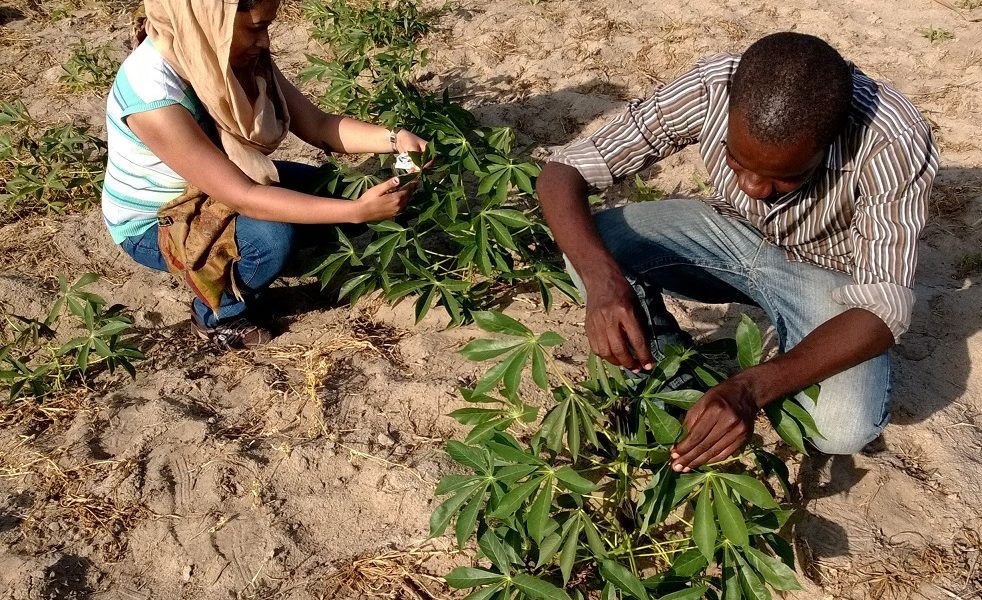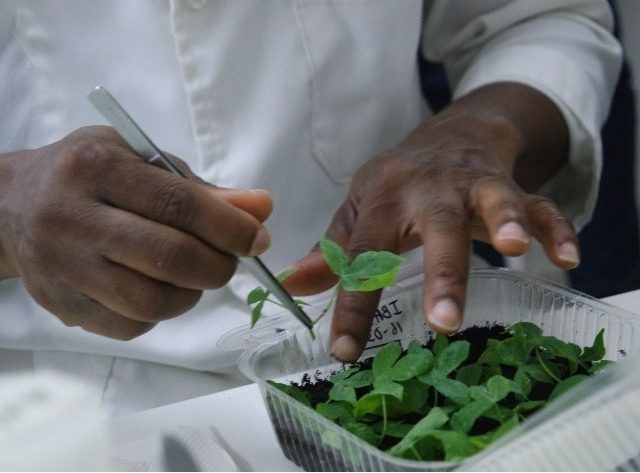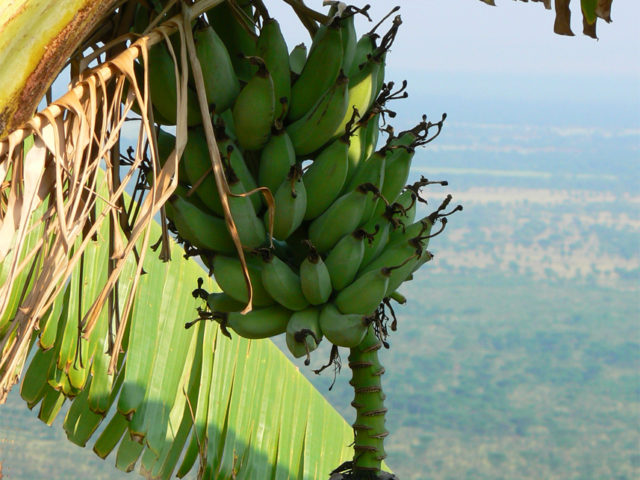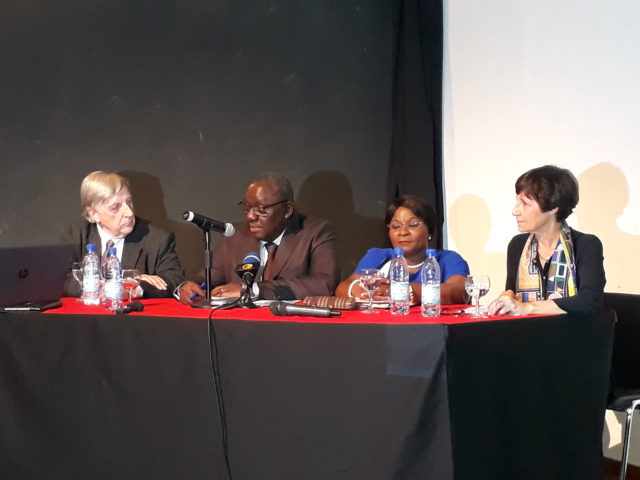Cassava is the second most important staple in Africa and is regularly consumed by more than 700 million people around the world, in everything from tapioca to starch. Yet in Africa, the vital crop is threatened by diseases that could greatly increase hunger if they continue to spread unchecked.
To confront this threat, international experts will gather in Saint-Pierre de La Réunion, France from 10-13 June to plan measures to improve the surveillance and control of cassava diseases in Africa. Organized by the Global Cassava Partnership for the 21st Century (GCP21), the French Agricultural Research Centre for International Development (CIRAD) and the French Institute of Research for Development (IRD), and supported by the CGIAR Research Program on Roots, Tubers and Bananas (RTB), the meeting will bring together experts from 13 African countries and international networks and organizations to share information and plan cooperative action.
Cassava has the potential to play an increasingly important role in food security as climate change advances, since it is drought resistant and responds well to high temperatures and high carbon dioxide levels. To safeguard this potential, an international cassava expert meeting on confronting major threats was held in Bellagio, Italy in May 2013, when participating scientists declared war on cassava viruses. They created a global strategy for managing cassava diseases called the Bellagio RoadMap, recently published in the journal Food Security.
Participant in the Saint-Pierre de La Réunion workshop will begin putting the Bellagio RoadMap into practice, in order to improve surveillance and diagnostic tools for the viruses and bacteria that attack cassava, and the whiteflies that spread them. The workshop’s objectives include establishing a Pan-African monitoring network for cassava diseases and coordinating studies on the most destructive bacteria, viruses and insect vectors.
The workshop is being held at the Plant Protection Platform (3P Center) in Saint-Pierre de La Réunion, because its laboratory has the equipment needed to safely perform comparative studies, sanitation and multiplication of planting material. Because La Réunion Island has a remote location in the Indian Ocean, yet is relatively close to the African continent, the 3P Center has been chosen to serve as an international cassava transit site, where certified pathogen-free cassava cultivars can be propagated and exchanged between continents.
Another important objective of the workshop is to coordinate and increase the training of young cassava researchers: while the 3P Center offers a unique opportunity to improve the sanitation and international distribution of cassava varieties, it will also serve as a training center for young African scientists. More on the workshop
The Global Cassava Partnership for the 21st Century (GCP21) is a not-for-profit international alliance of 45 organizations founded in 2002. It aims to fill gaps in cassava research and development in order to unlock the potential of cassava for improving food security and also increasing incomes of poor farmers through work to develop industrial products from cassava. Coordinated by Claude Fauquet and Joe Tohme, of the International Center for Tropical Agriculture (CIAT), GCP21 is providing updated information regarding the crop, the scientists working on cassava and cassava research around the world. www.gcp21.ciat.cgiar.org



